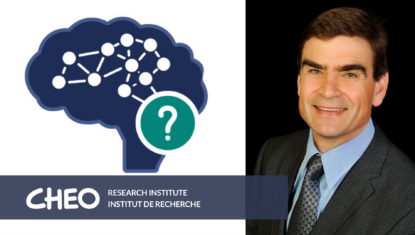07/06/2023
Ottawa, Ontario — Wednesday June 7, 2023

Who better to define what concussion research is most impactful than patients and families with lived concussion experience?
That is what the Concussion Priority Setting Partnership, led out of the CHEO Research Institute, and in collaboration with the James Lind Alliance set out to do – establish the top 10 concussion research priorities across Canada as defined by individuals with lived experience and caregivers in partnership with healthcare providers.
“These top 10 questions will help shape the future of concussion research to best meet the needs of individuals with lived concussion experience and those who care for them. By learning from their experience, and finding out what research findings they believe will have the most positive impact on their lives, we are now able to inform research funders and researchers to focus funding and research efforts in these areas where it matters most,” said Dr. Martin Osmond, Emeritus Senior Scientist at the CHEO Research Institute and principal investigator on the study.
The new study, published in JAMA Network Open, shares the results of the in-depth prioritization process. The top 10 concussion research priorities across Canada are as follows:
- Prediction of Recovery: What factors or tests best predict a prolonged recovery from concussion (known as post-concussion syndrome), and how can this information be used to develop a tailored strategy to manage the symptoms and support recovery?
- Return to Cognitive Activities: After a concussion, what is the best timing and approach to return to cognitive activities in educational settings (e.g., school or university) and work settings to give the best outcome?
- Early Referral: What is the effectiveness of early referral and treatment by a concussion specialist team (e.g., with combined medical assessment, physical therapies, mental health support and other rehabilitation services) on concussion outcomes and length of recovery?
- Return to Physical Activities: After a concussion, what is the best approach for a return to physical activity, exercise, and sports (i.e., timing, type, and intensity of activity) to give the best outcome?
- Headaches: What is the most effective way to manage headache associated with concussion, and should people with a prior diagnosis of migraine be treated differently to get the best outcomes?
- Differentiating Symptoms: What is the most effective way of differentiating prolonged concussion symptoms (known as post-concussion syndrome) from symptoms that are similar but unrelated to the concussion?
- Changes in the Brain: What structural and/or functional (e.g., molecular, biochemical) changes occur in the brain with a concussion? How does the intensity and direction of forces involved in the head trauma cause the brain injury, and does location of the brain injury impact symptoms and severity?
- Long-term Effects: What are the long-term effects of single or multiple concussions, and how do these effects impact day-to-day life?
- Sleep: What is the correlation between concussion severity and disturbed sleep patterns? What tools, aids, medications, or other interventions are most effective in managing these sleep disturbances?
- Healthcare Training: How can the training of front-line physicians and other healthcare providers to recognize, diagnose and manage concussion be improved and kept up to dat
The process to establish these concussion research priorities began in 2020 and went through an iterative process of two Canada-wide surveys and a virtual workshop to narrow down the research questions. Over 1,700 questions were asked by 249 Canadians, which were combined and narrowed down to 59 summary questions by the steering group. These questions were prioritized by 989 Canadians in an online survey to a shortlist of 17 questions. These final 17 questions were prioritized by 24 Canadians with lived concussion experience in a workshop to establish the top 10 unanswered questions in concussion research.
This project was funded by the Canadian Institutes for Health Research through the Canadian Concussion Network, the Ontario Ministry of Health, and the CHEO Research Institute through the internal Research Growth Awards.
-30-
Jennifer Ruff
Director of Communications
CHEO Research Institute
(613) 261-3979
[email protected]
